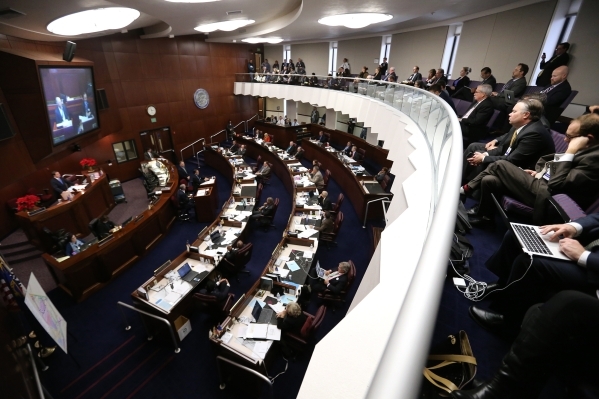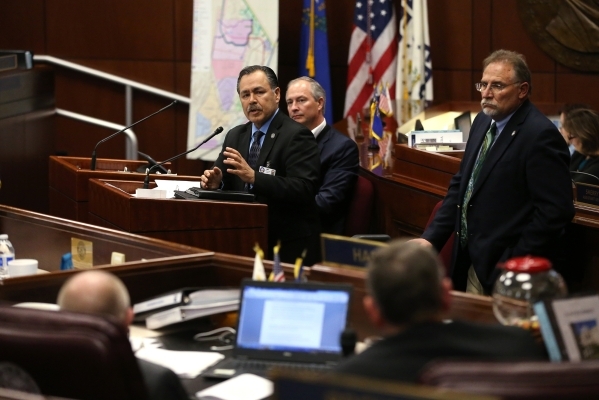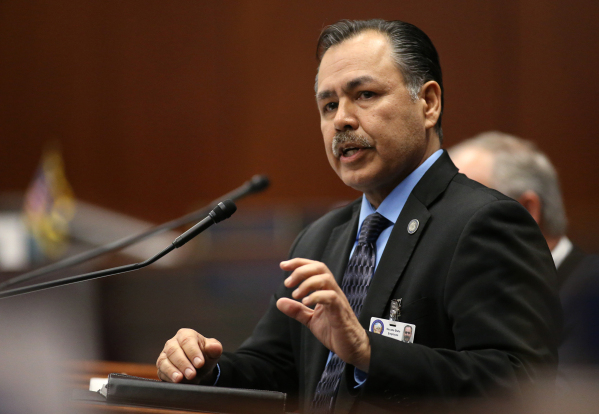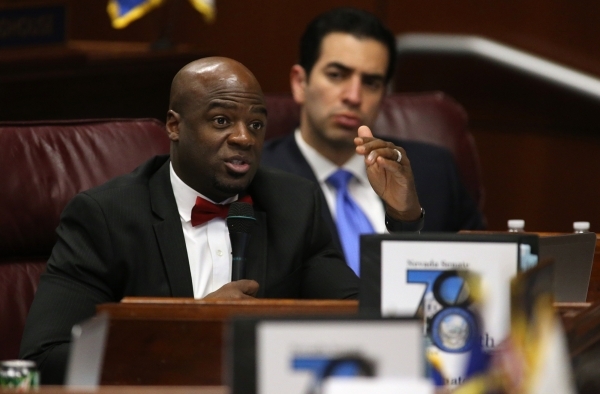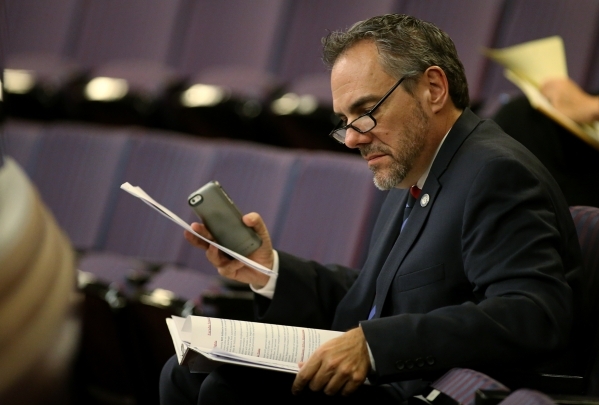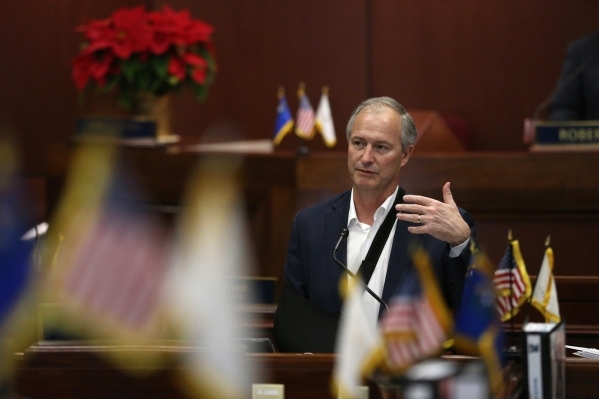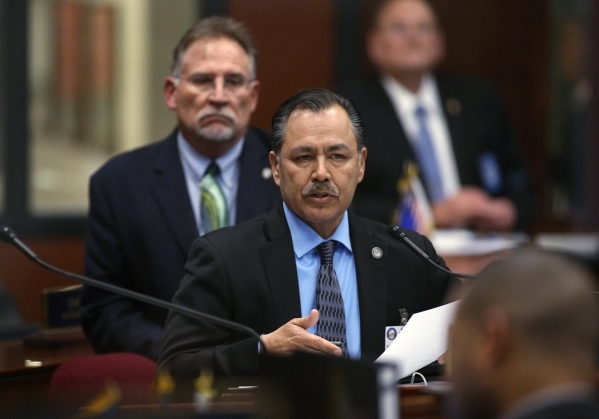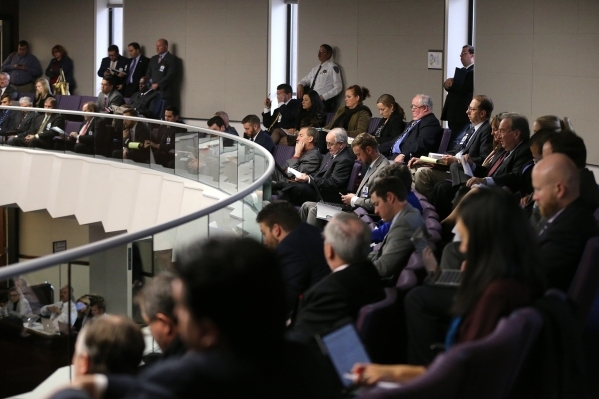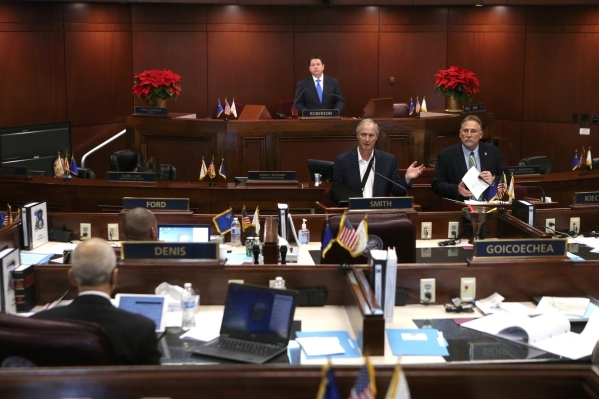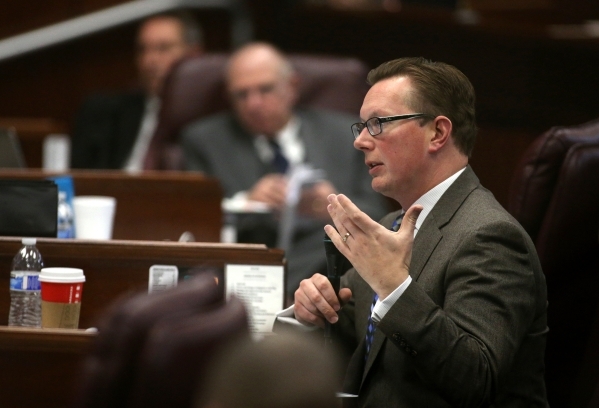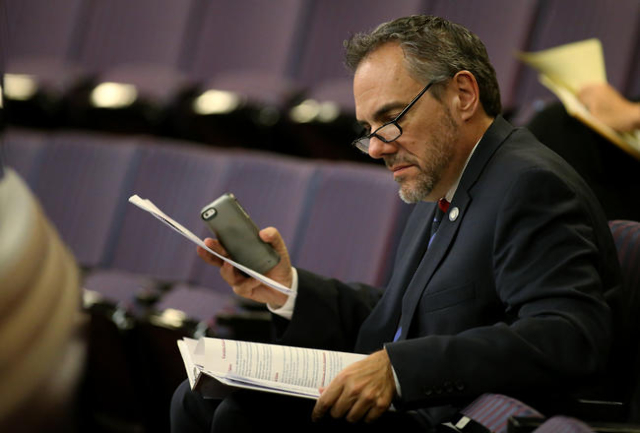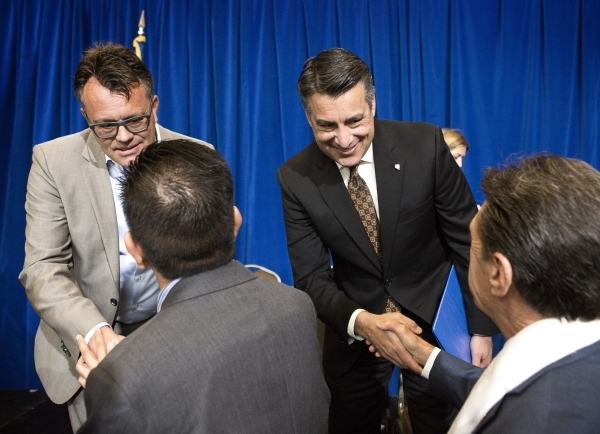Nevada legislators take first look at Faraday bills
CARSON CITY — State lawmakers Thursday dissected details of two bills that would give Faraday Future hundreds of millions of dollars in tax credits and abatements, and establish a workforce training program to prepare Nevadans to work at the electric car maker's $1 billion assembly plant proposed for the Apex industrial site in Southern Nevada.
Senate Bill 1 is an amended version of the big tax abatement legislation approved by lawmakers in 2014 to entice Tesla to build a $5 billion battery factory in Northern Nevada.
Assembly Bill 1 would establish Workforce Innovations for the New Nevada (WINN) Fund. The bill would allocate $2.5 million to create a program sufficient to provide training for up to 4,000 automobile assembly workers at the facility. It would train up to 800 workers in any given 12-month period.
The bills were heard in the respective chambers in lengthy hearings, but both measures are in line for changes that have slowed the Faraday Future special session. Lawmakers may have to work into Saturday to pass the legislation needed to bring the company to Nevada to manufacture its electric cars.
Initial plans were for the bills to be amended and voted out of each chamber Thursday. But instead, both houses adjourned without taking action in the first full day of a special session to consider the major economic development project. Lawmakers will get back to work Friday.
Gov. Brian Sandoval announced a deal with the company last week, the latest major coup for his economic diversification efforts. But lawmakers will have to OK legislation to make the project a reality.
Steve Hill, executive director of the Governor's Office of Economic Development, walked senators through Senate Bill 1, which would set a second-tier threshold of $1 billion that Faraday, and other eligible companies, would have to meet to get certain tax credits and abatements.
Faraday has said it will invest $1 billion in a 3 million-square-foot plant to be built at the Apex Industrial Park in North Las Vegas, an 18,000-acre industrial park that has remained vacant and undeveloped for decades.
"We're excited about this project. We're excited about what this project will mean about industrial development in Southern Nevada," Hill said.
The bill would allow $176 million in tax abatements and $38 million in transferable tax credits, provided Faraday meets benchmark thresholds. About half the abated taxes would be paid by Faraday upfront and held in a trust account until spending requirements are met.
SB1 also contains bonding provisions to allow the state to raise money to help bring much-needed infrastructure to the site. It would require a two-thirds majority for passage — 14 votes in the Senate and 28 in the Assembly.
Providing water, sewer and other services to the site would "open up industrial land in Southern Nevada that has been sorely lacking and a real impediment to economic development," Hill said, adding he believes a number of companies would have located at Apex but went elsewhere because of no infrastructure.
One provision of the bill giving the state water engineer greater authority over interbasin water transfers was being amended because of concerns from rural lawmakers.
A separate bill dealing with how water at the Apex site will be administered was still being drafted and was not yet introduced.
In the Assembly, lawmakers heard details of the workforce development piece of the Faraday package contained in Assembly Bill 1.
Dale Erquiaga, chief strategy officer for the governor's office, provided lawmakers with an overview of the plan to help train workers for the jobs expected to be available at the company's plant.
The WINN fund would have oversight from the Governor's Office of Economic Development and would be available for the recruitment and training of other businesses as well with an eye to creating a skilled and diverse workforce.
Faraday would be required to hire at least half of its workforce from Nevada residents and provide an average wage of $22 an hour for its workers. That is slightly higher than the average Nevada salary.
If the deal is approved, cars are expected to roll off the assembly line in late 2017.
Contact Sandra Chereb at schereb@reviewjournal.com or 775-687-3901. Find her on Twitter: @SandraChereb. Contact Sean Whaley at swhaley@reviewjournal.com or 775-687-3900. Find him on Twitter: @seanw801.



